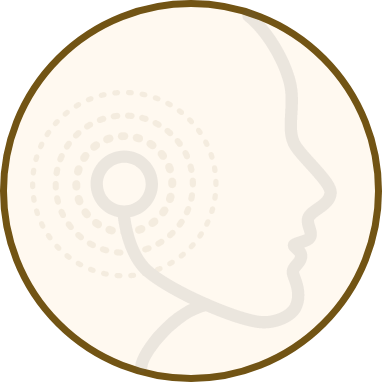TMJ Therapy Centre Frequently Asked Questions
 Common Answers to Questions We Hear
Common Answers to Questions We Hear
Like other chiropractors, at TMJ Therapy Centre we hear many questions from new and current physiotherapy patients. Below are answers to some of the most common questions we are asked.
Why seek a Dental and Physiotherapy Team approach?
How are we different to other TMJ therapists and centres?
We are also the first accredited TMJ and Sleep Therapy Centre in Australia and the only one in Victoria. We are closely affiliated with more than 50 centres around the world and have access to the most up to date research and treatment on TMJ and sleep-related breathing disorders. Using these resources provides us with a broad and detailed understanding of the multifactorial causes involved with TMJ and sleep disorders.
What causes TMJ and will it go away?
Many other times it is caused by a number of inter-related factors that aggravate each other, for example, poor posture, poor nasal breathing and/or airway obstruction, disturbed jaw function, malocclusion (a bad bite), bruxism (grinding teeth) and habitual clenching, previous dental treatment, excess inflammation and continuous mental and emotional stressors.
Even simple habits like chewing gum and fingernail biting can have an effect on the TMJ area and in some cases lead to painful symptoms. TMJ symptoms can also be caused by pain in a distant or poorly positioned structure such as the pelvis or feet.
This is why correct diagnosis is critical and effective resolution of TMJ requires a multi-discipline approach. Yes, you can be pain free and reduce or eliminate the symptoms of TMJ. With our integrative treatment and highly developed research-based approach, a visit to our clinic is the best first step to tackle your TMJ.
What will happen if I do nothing?
In severe cases, TMJ can lead to chronic pain, damage of the jaw joint, locked jaw, issues opening the mouth, and distorted posture all of which may have limited response to traditional physical therapies.
Whether your symptoms and prognosis are on the mild or severe side, wouldn’t it be better to consider a future free from TMJ (TMD) symptoms?
Treating the TMJ can change your quality of life; with better sleep, reduced pain, better physical freedom and performance all likely outcomes of our treatment.
Did you know that females are more likely to be affected by TMJ symptoms? Browse our Educational post section for a look at TMJ topics in more detail.
Research has shown that children’s IQs can be permanently affected by untreated TMJ and sleep disorders.
If you’ve visited your child’s regular doctor and still been unable to ease the symptoms, perhaps it’s time to consider a more targeted, yet holistic approach through TMJ Therapy Centre.
At TMJ Therapy Centre, we are able to provide a more in-depth diagnosis and explanation of the child’s symptoms and where appropriate, a specific treatment plan – generally without any need for medical or surgical intervention.
Easing your child’s pain and improving their sleep are very important, as these early years are essential in your child’s physical and mental development. Studies have shown that behaviour, learning concentration and IQ may all be impacted.
We recommend you contact us to discuss your concerns and if needed, book an appointment to assess whether your child is suffering from a TMJ or sleep related issue.


